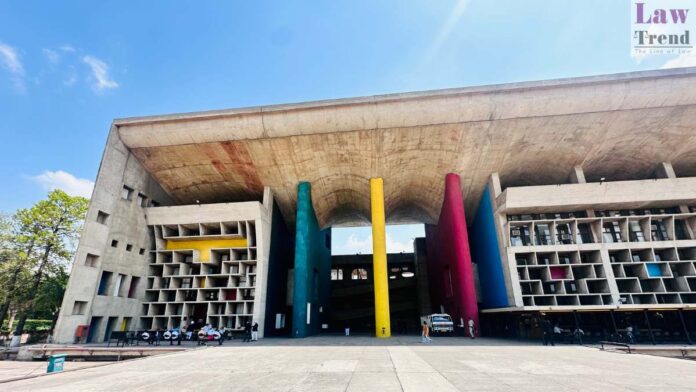The Punjab and Haryana High Court has firmly established that it alone holds the authority to determine whether disciplinary proceedings should be initiated against officers of the superior judicial service, reaffirming the principle of judicial independence enshrined in the Constitution.
A division bench comprising Chief Justice Sheel Nagu and Justice Sumeet Goel made the ruling while dismissing a petition filed by a Ludhiana-based lawyer. The petitioner had challenged the February 2023 decision of a High Court judge, acting as the administrative judge of Yamunanagar district, who ordered the closure of a preliminary enquiry into allegations made by the petitioner against a Haryana superior judicial service officer.
The High Court clarified that the administrative framework of the judiciary is endowed with adequate discretion to assess the sufficiency of materials—such as complaints, supporting affidavits, and the judicial officer’s response—before initiating disciplinary action.
The petitioner had urged the court to quash the administrative judge’s order and direct the state government to initiate disciplinary proceedings. He also sought the withholding of an integrity certificate for the judicial officer in question.
Rejecting these demands, the bench held that although the appointment of superior judicial officers is formally made by the Governor, it is done only in consultation with the High Court, as mandated by constitutional provisions. This consultative process, the court said, reinforces the independence of the judiciary under Article 50 of the Constitution.
Explaining the standard procedure, the bench noted that all written complaints regarding judicial officers are dealt with in accordance with established rules and protocols. After receiving a complaint, the judicial officer is given an opportunity to respond. Based on the response, the administrative judge then conducts a preliminary enquiry to decide whether disciplinary action is warranted.
“In this case, the administrative judge found no sufficient material to proceed further and decided to close the enquiry,” the bench observed. “Once such a complaint is processed in accordance with established administrative norms, the decision to close the preliminary enquiry is not subject to judicial review—unless there is a clear case of mala fide intent or violation of fundamental rights.”
The High Court thus dismissed the petition, reiterating the judiciary’s exclusive administrative jurisdiction over its officers and shielding it from unwarranted external interference.




